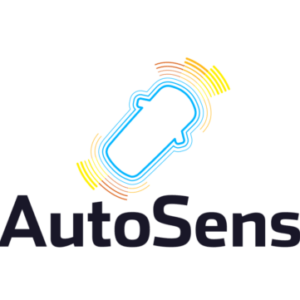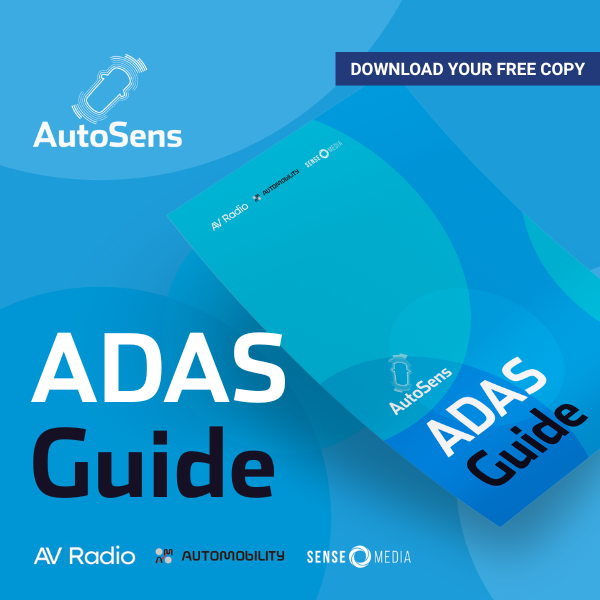This October, InCabin Europe returned to Barcelona, bringing together a community of professionals and engineers developing in-cabin technology throughout automotive. The event was co-hosted with AutoSens Europe, and showcased innovation across the industry.
The week of events featured a packed schedule of expert-led roundtables, in-depth tutorials, and an exhibition floor demonstrating the latest in ADAS innovations and technology.
On Wednesday 8th October, six premier InCabin partners participated in a joint press conference, unveiling new products and sharing updates on the latest technological advancements. Key topics included new and improved hardware, across both internal and external sensors, as well as developments of safety software, AI enhancements, and the need for real-life testing, aligning with the latest updates in safety requirements for ADAS features.
Read on for a recap of the presentations made by Tobii, Anyverse, Rheinmetall Dermalog SensorTec, Sightic, LITEON, and Brighter Signals during InCabin Europe 2025.
Tobii presented a joint demo with three other innovative companies within the ADAS space, featuring Texas Instruments, HTEC and D3 Embedded.
Making its public debut at InCabin Europe, Tobii, along with its interior sensing branch Tobii Autosens, presented its latest development of a complete interior sensing solution, with the integration of a single-camera and radar interior sensor fusion. The system is built on Texas Instruments’ TDA4VEN processor, an automotive-grade System-on-Chip with a high-resolution radar sensor. Designed specifically for automotive AI workloads, the processor includes dedicated AI accelerators that enable deep learning models, used for real-time driver and occupant monitoring.
The visual sensing layer is powered by STMicroelectronics VG5761 image sensor, delivering high sensitivity, wide dynamic range, and reliable operation in low-light environments. Texas Instruments AWRL6844 mmWave radar sensor can detect occupant presence, subtle body movements, and vital signs, even in complete darkness or when line of sight is obstructed. The fusion of the single-camera solution with a single radar enhances interior sensing capabilities, such as intruder alert and detections obstructed by in-cabin design.
The collaboration brings together expertise from across the automotive ecosystem. D3 Embedded joins the project, leveraging 25 years of expertise in embedded systems to deliver the advanced camera and radar fusion platform. Additionally, HTEC has contributed its end-to-end ADAS expertise, helping unite software, radar, camera systems, and optimisations into a seamless solution. Finally, Texas Instruments provides the SoC and radar sensing technology to power the complete platform.
Team members from all four companies presented at the InCabin Europe conference to premiere the platform; Bogan Petchu from Tobii, Tim Henderson from Texas Instruments, Stefan Koncar from HTEC, and Tom Mayo from D3 Embedded all joined the presentation.
Henrik Mawby, Head of Ecosystem and Partnerships at Tobii Autosense, said, “This achievement reflects true collaboration across complementary domains of expertise. Together with HTEC and D3 Embedded, we’ve been able to fuse camera and radar in a way the industry hasn’t seen before, delivering safer and more cost-efficient interior sensing to help automakers meet tomorrow’s safety standards.”
Anyverse joined the InCabin Europe conference to discuss its research into the implementation of advanced synthetic-data-driven testing for in-cabin monitoring, in collaboration with Euro NCAP.
Anyverse, a leader in synthetic data for in-cabin monitoring, discussed how the research will investigate a high-fidelity, parameterised synthetic data testing framework, designed to evaluate driver state monitoring, occupant monitoring, and child presence detection systems.
The framework will establish a consistent benchmark for in-cabin system assessment using Anyverse’s synthetic data, including biomechanical human modeling and extensive scene variability. Each scenario will be designed to ensure in-cabin systems are assessed with a wide range of standardised and repeatable conditions.
The research aims to streamline the in-cabin evaluation process by bringing together the data, protocols, and processes across each function. This helps OEMs, suppliers, and integrators understand expectations and design for robustness, ultimately delivering safer experiences for vehicle occupants.
Victor Gonzales, CEO of Anyverse, joined InCabin Europe for the presentation and said, “Euro NCAP’s mission is to assess safety systems against rigorous criteria – our role is to support that mission with tools that extend coverage. Synthetic data lets us probe conditions that are difficult to stage physically, so Euro NCAP can study the full picture of in-cabin system behavior with greater repeatability and control. We’re proud to contribute our technology and know-how to this research effort.”
Rheinmetall Dermalog SensorTec joined the InCabin Europe conference to announce a new strategic partnership with Texas Instruments.
Texas Instruments will supply a next-generation radar chip to enhance Rheinmetall Dermalog SensorTec’s in-cabin sensing system, providing comprehensive vehicle interior monitoring while relying on just two sensors: camera and radar.
This new partnership creates a system that integrates camera and radar technologies with advanced software, delivering a wide range of safety and comfort features with minimal hardware. By using just two sensors, this provides an efficient and cost-effective way to meet upcoming automotive safety regulations.
Texas Instruments contributes extensive experience in automotive radar and semiconductor technology, with a new radar chip family that offers greater range, higher sensitivity, and more efficient signal processing. The collaboration helps position Rheinmetall Dermalog SensorTec at the forefront of in-cabin innovation.
The team was represented at InCabin Europe by Dr. Steffen Häfele, Managing Director of Rheinmetall Dermalog SensorTec, and Tim Henderson from Texas Instruments.
At InCabin Europe 2025, Sightic announced that it had secured ethical approval for the world’s largest study on impaired driving.
Sightic was founded by Jenny Johansson and Stefanie Najafi, with over 20 years of combined experience in law enforcement and security. As such, its mission is to develop cutting-edge, non-invasive technology that enhances productivity, prevents accidents, and fosters a culture of trust within organisations.
With ethical approval to collect data from up to 5,000 drivers, the naturalistic study will help understand alcohol and drug impairment within automotive. The scale of the ethical foundation of Sightic’s study will allow for fairness and representation throughout the data, with a broad driver base across age, gender, and background, to help reduce risk of bias.
Additionally, by combining simulation and real-world data, this reduces overfitting and ensures reliability in real-life scenarios. Large datasets also make it possible to detect rarer patterns to enhance risk assessment and road safety. This extensive data allows modern AI and machine learning to achieve higher precision and trustworthy conclusions to further develop driver and occupancy safety features.
The concluding data requires no new software and is DMS agnostic, allowing manufacturers to use this scientifically validated methodology and data collection across the industry.
Snjezana Simic, Senior Vice President at Sightic Analytics, presented at InCabin Europe, and said, “With this initiative, Sightic sets a new benchmark – a responsible, ethically grounded and scientifically robust effort to advance driver monitoring technology and make roads safer for everyone.”
At InCabin Europe, LITEON introduced its latest automotive vision perception software, designed for collision avoidance by integrating in-cabin and environmental sensing. Developed by LITEON’s Vision Software division, the software suite uses AI and deep learning technology to deliver real-time physical and physiological status monitoring for occupants. Additionally, the system fuses environmental sensing features to help prevent collisions.
The infrared camera allows for high-resolution driver gaze tracking to identify the driver’s attention point, while also identifying driver heart rate, fatigue, and sudden health issues without physical contact. The heterogeneous dual camera creates 3D depth sensing, building spatial depth maps to measure proximity and posture and improving object localisation and recognition accuracy.
The in-cabin/ex-cabin synergy combines interior driving monitoring and exterior environmental sensing to both improve risk detection and reduce unnecessary warnings to improve the driving experience. The software also allows for seamless ADAS integration and can leverage existing in-cabin sensors to upgrade existing vehicle platforms.
Darren Chen, Head of the Vision Software Division at LITEON Technology, joined AutoSens Europe to share the developments, and discussed the team’s goal for a zero-accident automotive experience.
Finally, Brighter Signals joined the InCabin Europe conference to announce a strategic partnership with Jiangsu Changshu Automotive Trim Group (CAIP) to manufacture its groundbreaking tactile sensors.
The sensors will be produced initially in China, before expanding to Brighter Signals’ European facility in 2026.
The patented sensors are crafted from fabric and measure force, weight, position, movement, and proximity in real time without the need for post-processing. This allows unprecedented levels of speed, durability, and affordability, as well as being recyclable and sustainability produced, combining performance with environmental governance.
The sensors have already undergone more than three years of testing by global car manufacturers, providing a superior alternative to radar and other legacy systems. Its initial application will support the latest safety regulations, with comfort and intelligent interior features also a practical benefit.
Andrew Klein, CEO of Brighter Signals, said, “This partnership with CAIP is a major step forward in our mission to bring tactile sensing into every car and every factory. CAIP’s global manufacturing footprint and deep expertise in automotive systems will help us scale production rapidly and deliver our technology to OEMs worldwide. Together, we are enabling safer, more intelligent and more sustainable mobility.”
Conclusion
InCabin Europe 2025 presented new developments across ADAS and DMS products, recognising the growing diversification of safety requirements across Europe and beyond. From more modern hardware to new grounds of AI-enhanced software and more rigorous Euro NCAP safety testing, the conference showed how global expertise is continuing to raise the bar while developing the future of in-car safety.
To learn more about any of the exhibitors at InCabin Europe 2025, view our full list here.
Interested in exterior sensing technology?
By joining us at InCabin, you’ll also get full access to our co-located sister event, AutoSens. Take a look at the press recap from AutoSens Europe here >>




